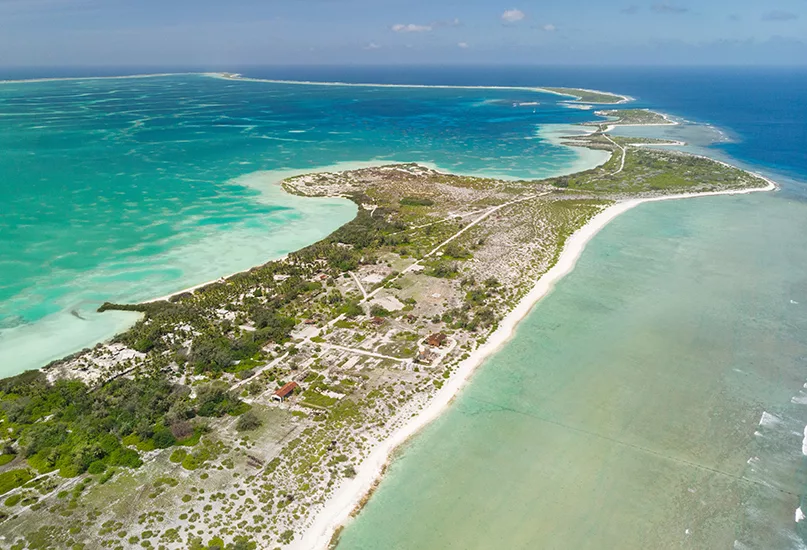SCORING FOR SUSTAINABILITY
In association with the Pacific Islands Forum (PIF), which aims to enhance cooperation amongst the countries and territories of Oceania, FIFA and OFC hope that, as a universally recognised symbol of togetherness and camaraderie, football can act as a unifying vessel through which the message of climate action can be spread.
FIFA AND THE CLIMATE CRISIS
As an organisation, FIFA has historically been heavily involved in promoting climate awareness and mitigation. For instance, it was responsible for launching a Climate Strategy in November 2021 at the UN Climate Change Conference (COP26), hosted in Scotland.
The following year, FIFA and PIF signed a memorandum of understanding (MoU) that focused on education, climate change, and fostering disaster resilience across the forum’s 18 member countries. This included developing advocacy strategies and boosting community initiatives.
In addition, the FIFA Forward programme, a sports development initiative aimed at supporting global football development across a range of socioeconomic circumstances, has since funded designated football infrastructure designed for disaster resilience. So far, through FIFA Forward, the association has invested a total of USD$21 million in climate-resilient football infrastructure development in the Pacific region.
In many cases, the programme’s resulting facilities have proved life-changing. For example, the Tonga Football Association’s headquarters was used by residents as shelter during the eruption of the Hunga Tonga-Hunga Ha’apai submarine volcano, as it was one of the only safe buildings on the island. The headquarters also provided protection for local people caught in a tsunami later that year.
Similarly, the Fiji Football Association’s Labasa facility provided refuge during a major cyclone on the island in 2021.
In a region where the world’s first climate refugees have emerged in recent years, the need for infrastructure and global action has become even more pressing. For example, around 1,700 people native to PNG’s low-lying Carteret Islands were recently forced to relocate to Bougainville due to rising sea levels.

THE IMPACT OF CLIMATE CHANGE ON FOOTBALL AND BEYOND
PIF and FIFA believe football to be an invaluable vehicle through which climate change can be discussed in an open, accessible way. The sport itself, however, has not escaped global environmental challenges.
An increase in adverse weather conditions in the Pacific region, such as rising temperatures, has led to noticeable changes in the game.
The implementation of cooling breaks has become common practice, allowing players to rehydrate during games.
The cost of providing water for players has also increased significantly in recent years, as has the frequency of cancelled matches due to excess rain and flooding.
As football expands across more countries within the Pacific region, such as PNG, whose climate refugees can be seen as a poignant indicator of what’s to come, adverse weather changes continue to impact not only how football is played, but the entire landscape of each country.






























